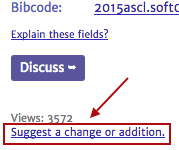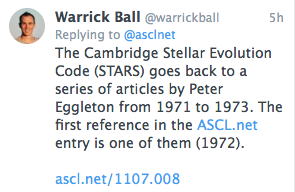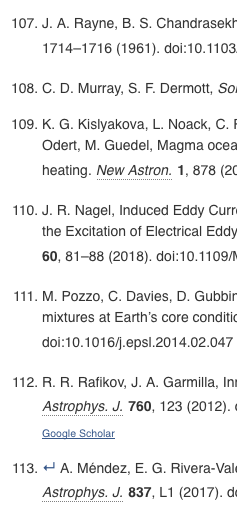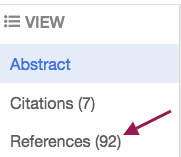I am involved in several efforts, in addition to the ASCL, to improve recognition and credit for software authors; one such effort is the FORCE11 Software Citation Implementation Working Group (SCIWG), in which several software registries and repositories are involved. These resources, along with others not part of the SCIWG, have formed a Repository Best Practice Task Force, which has held monthly conference calls this year to collaboratively develop a list of best practices for such resources. This has also been an excellent vehicle for enabling people who run these resources to share information about managing software registries and working with software authors, researchers, and journal editors to improve software citation.
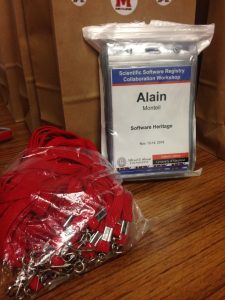 Thanks to funding from the Sloan Foundation, members of this Task Force and other software resources are coming together in a Scientific Software Registry Collaboration Workshop to demonstrate unique aspects of our respective services, discuss challenges and share solutions to common issues that arise in managing our resources, finalize a list of best practices for our resources, and work cooperatively to speed adoption of the CodeMeta and/or Citation File Format standards. The workshop has been organized by the Caltech Library and ASCL, and takes place at the University of Maryland (College Park) this coming Wednesday and Thursday (November 13-14). It includes presentations by software registry managers and subject matter experts, break-out sessions for collaborative work, and group discussion.
Thanks to funding from the Sloan Foundation, members of this Task Force and other software resources are coming together in a Scientific Software Registry Collaboration Workshop to demonstrate unique aspects of our respective services, discuss challenges and share solutions to common issues that arise in managing our resources, finalize a list of best practices for our resources, and work cooperatively to speed adoption of the CodeMeta and/or Citation File Format standards. The workshop has been organized by the Caltech Library and ASCL, and takes place at the University of Maryland (College Park) this coming Wednesday and Thursday (November 13-14). It includes presentations by software registry managers and subject matter experts, break-out sessions for collaborative work, and group discussion.
I’m happy to say we are able to provide remote access to most of the plenary portions of the workshop through Webex; links on the workshop agenda identify the sessions available over Webex. As the workshop has an element of unconferencing, it’s possible that additional portions of the workshop will be suitable for Webex and if so, we will update the agenda accordingly. In addition, we will have someone live-scribing the event; a link to the Google Doc for these notes will be added to the agenda webpage before the workshop begins.
A major focus of this workshop is to discuss and finalize the best practices that have been identified so far in our monthly conference calls. A draft list of the practices (PDF) is available for download below; these are the practices we will be working on in break-out groups during the workshop. Links to the Google Docs we will be using for these breakout sessions are listed on the agenda; this offers another way for anyone interested to see the work being done in this meeting.
I have wanted to meet with others doing work similar to that I do on the ASCL for a long time, and am very grateful to Tom Morrell, Mike Hucka, and Stephen Davison from Caltech Libraries for partnering with me to organize this workshop, and to Josh Greenberg at the Sloan Foundation for thinking this workshop was a good idea and funding the project. My thanks to all of them!
Draft list of Best Practices for research software registries (pdf)
